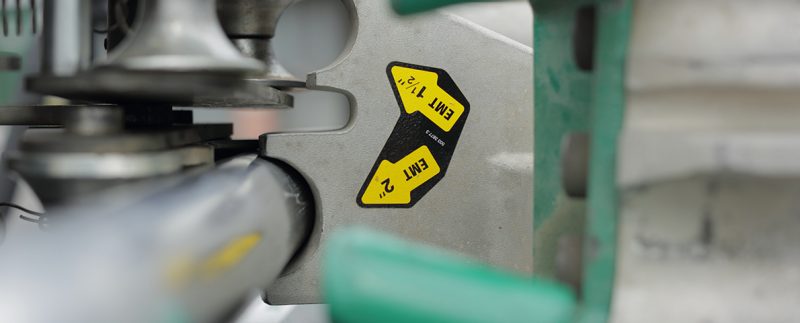If you’re new to purchasing conduit, you might be wondering what to choose when deciding between EMT vs rigid metal conduit. The experts with American Conduit will be more than happy to answer this and any other questions you may have. We are committed to total customer satisfaction, as well as providing the very highest quality products available on the market. Here are some of the ways that EMT and rigid metal conduit differ, as well as information on the many benefits of aluminum conduit vs. steel.
PullEase EMT
 There are many different types of electrical metallic tubing (EMT), but there’s nothing like PullEase from American Conduit. We’ve created a form of EMT that doesn’t need any sort of lubrication. Thanks to its proprietary ridged design, PullEase EMT makes pulling wires much faster than ever before possible. You’ll not only save a great deal of money by purchasing PullEase, your efficiency will go through the roof.
There are many different types of electrical metallic tubing (EMT), but there’s nothing like PullEase from American Conduit. We’ve created a form of EMT that doesn’t need any sort of lubrication. Thanks to its proprietary ridged design, PullEase EMT makes pulling wires much faster than ever before possible. You’ll not only save a great deal of money by purchasing PullEase, your efficiency will go through the roof.
EMT is a form of conduit that’s also known as “thin-walled” tubing. However, even though it has thin walls, it still does a fantastic job of protecting wiring – from not only the elements, but also from any type of accidental physical damage. EMT is designed for inside use, but there are also plenty of instances where it can be used outside. All you need to do is remember to use clamps and fittings that resist corrosion.
RMC
Rigid metal conduit (RMC), as the name implies, has thicker walls than EMT. While it’s more expensive, buying aluminum RMC still costs much less than steel. RMC is made for outdoor use. Since aluminum is an excellent thermal conductor, it will always be safe to touch no matter how hot or cold the outside temperatures may get. In addition, aluminum actually gains strength the lower the temperatures fall.
Aluminum Vs. Steel – The Tale of the Tape
If you are one of those who believe that steel is always the preferred material for conduit, we have a lot of evidence to the contrary. In fact, aluminum beats steel in so many ways it’s not even close. These are just some of the reasons why you should always turn to aluminum.
- American Conduit products are about a third the weight of steel. The average 10-foot length of aluminum conduit weighs about 34 pounds. The same amount of steel conduit weighs closer to 100. Since you won’t have to devote as many workers to an aluminum conduit installation, your labor costs will plummet.
- But labor costs aren’t the only savings you’ll enjoy. Aluminum weighs up to 60 percent less per foot than steel. Not only will you see substantial cost savings on materials, you’ll also save should you ever have to ship your conduit to another location.
- So, you might assume you’ll have to give up something in terms of quality in order to take advantage of those cost savings. But that’s not the case whatsoever. American Conduit products are just as strong as steel, and they’re also more durable. You can install them in moisture-laden environments and they won’t rust or corrode.
When comparing EMT vs rigid metal conduit, remember to always turn to American Conduit once you make your decision. You can learn more by using our convenient online form, or by calling 1-800-334-6825.

